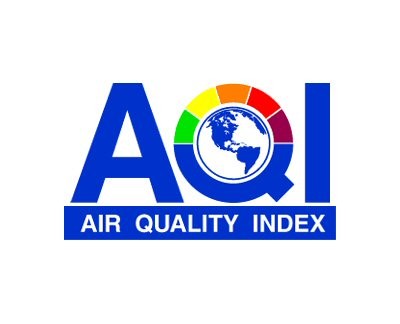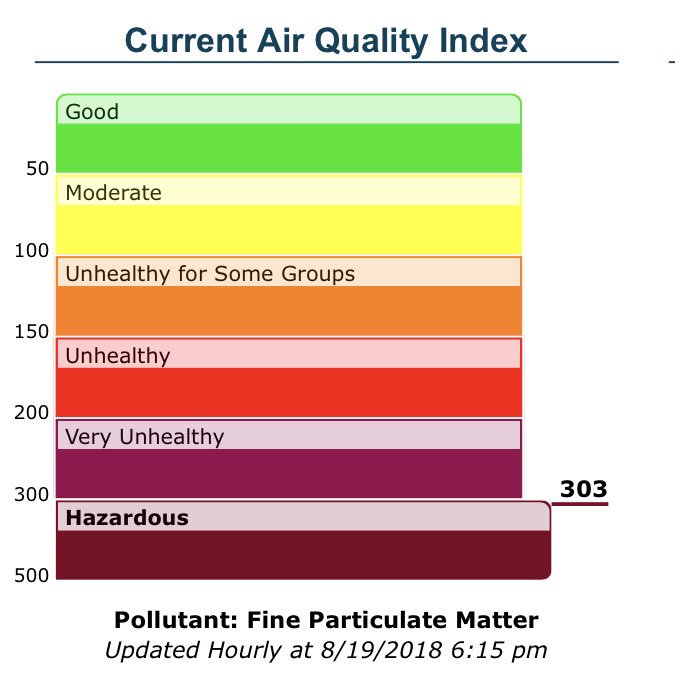
The AQI is an index for reporting daily air quality. It tells you how clean or polluted your air is, and what associated health effects might be a concern for you. The Air Quality Index ( AQI ) is used for reporting daily air quality. This report provides Air Quality Index annual summary information, including maximum AQI values and the count of days in each AQI category.
Use the query tool below to get AQI reports for one state, county, or CBSA at a time. Click this link if you want a national file that lists all counties or CBSAs. AIR QUALITY INDEX Numbers in the chart above show the Air Quality Index for today, based on an average over time.
See AQI Table for how to interpret the colors. The Index numbers represent a ranking for the pollutant, not the measurement of a pollutant. Most of the stations on the map are monitoring both PM 2. The World Air Quality Index project has exercised all reasonable skill and care in compiling the contents of this information and under no circumstances will the World Air Quality Index project team or its agents be liable in contract, tort or otherwise for any loss, injury or damage arising directly or indirectly from the supply of this data. This table shows a provincial summary of current Air Quality Health Index values and forecast maximums 1. AQI: Unhealthy for Sensitive Groups (1- 150) Although general public is not likely to be affected at this AQI range, people with lung disease, older adults and children are at a greater risk from exposure to ozone, whereas persons with heart and lung disease, older adults and children are at greater risk from the presence of particles in the air.
Public comments and suggestions are encouraged. A FAQ page is available. This approach allowed the practical experience gained from over six years of commercial on-road testing by Emissions Analytics to be combined with expertise from a wide range of leaders in emissions control, emissions policy and air quality.
The following spreadsheets provide air quality status and trends for counties and cities, defined as CBSAs (Core-Based Statistical Areas Exit), with monitoring data. This scale is based on the National Ambient Air Quality Standards (NAAQS) and is described in the Code of Federal Regulations, Part 5 Appendix G. Taken together, concentration and time represent the dose of the air pollutant. Air Quality Index (AQI) Computation of the AQI requires an air pollutant concentration over a specified averaging perio obtained from an air monitor or model. Health effects corresponding to a given dose are established by epidemiological research.

Get real-time, historical and forecast PM2. Read the air pollution in Bangkok, Thailand with AirVisual. Air quality readings are updated hourly and a daily air quality forecast is made for the Greater Sydney Metropolitan Region at 4pm each day.
Time shown is in Hong Kong time. What is the Air Quality Index (AQI)? AQI, or Air Quality Index , is a system for translating sometimes confusing or unintuitive pollutant concentration measurements, into one easy-to-understand scale to clearly represent the health risk posed by air pollution. The higher the AQI value, the greater the level of air pollution and the.

The Briceburg Fire is currently impacting Air Quality in several areas of Mariposa County. Air Quality is expected to range from good to unhealthy depending on location and wind conditions. Environmental Protection Agency (EPA) has developed the index , which is divided into categories, indicating increasing levels of health concern. Think of the AQI as a yardstick that runs from to 500.
The South Coast Air Quality Management District (AQMD) is the air pollution control agency for all of Orange County and the urban portions of Los Angeles, Riverside and San Bernardino counties, among the smoggiest regions of the U. We are committed to protecting the health of residents, while remaining sensitive to businesses. Action Days always convey overarching public health recommendations, an according to season, trigger a variety of mandatory and voluntary pollution prevention measures.
No comments:
Post a Comment
Note: only a member of this blog may post a comment.